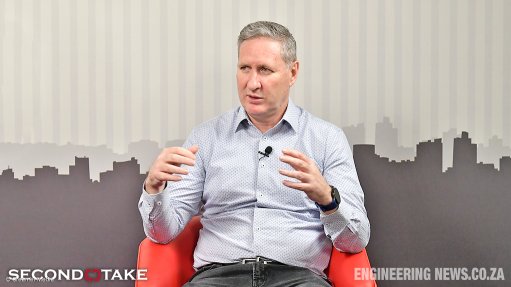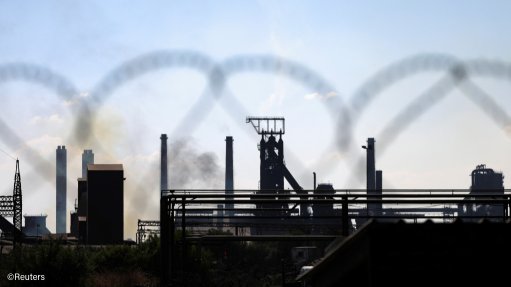Majority of investors want short-term wins over long-term ESG gains, poll shows
According to a poll taken at the South African Real Estate Investment Trust 2024 conference, more than 57% of delegates in attendance believe investors are unwilling to sacrifice short-term wins for long-term gains won from implementing environmental, sustainability and governance (ESG) goals.
The remaining 43% of delegates were split along the rest of the Likert scale.
Speaking at the event, PwC chief economist and Africa ESG lead Lullu Krugel added that, in research conducted by PwC, it was found that only 34% of companies polled said that investors would be willing to accept a lower rate of return in exchange for ESG benefits. Of these, Krugel noted, investors would only accept a one percentage point reduction or less.
Despite these figures, more than half of the delegates at the conference said in a separate poll that ESG played an integral part in their organisation’s strategic imperative for creating long-term value.
The conference, which last took place in 2022, played host to several hundred property industry leaders, investors, experts and bankers, representing companies such as Attacq, Emira Property Fund, Growthpoint Properties, Vukile Property Fund, Sesfikile Capital, Nedbank and PwC, among others.
Gordon Institute of Business Science climate leadership and sustainability head Tanya Dos Santos admitted that the sentiments expressed by delegates in the polls were in line with what she said was a growing anti-ESG movement that had been coming for some time.
She said signs of this pushback had become evident abroad already, following a wave of attempts by investors and private companies lobbying for anti-ESG legislation in the US last year and climate activists being sued for their attempts to block fossil fuel investments.
“In the US, there were 150 anti-ESG models and proposals put forward last year. Most of those didn't make it but it's a show of where the sentiment is, and that sentiment has hit the markets,” she said.
However, notwithstanding the growing pushback, Dos Santos said the rise of ESG was inevitable, with ESG-focused regulations globally having increased by 155% over the past decade.
“This is an indication of not just where we're going to but where this has come from. So, we can be as anti as we want. It's coming. And in fact, it's not just coming, it's here,” she said.
Dos Santos noted that, a few years ago, the ESG revolution arrived, caused much excitement and received a lot of publicity, with many companies eagerly getting involved.
However, as the scale of the climate change problem and the kinds of changes ESG required of businesses became more apparent with time, the overenthusiasm was eventually met with a backlash, which had been growing in prevalence.
However, Dos Santos is hopeful that the backlash will be fleeting.
“I think, in my personal view, we're coming to the end of the backlash, which is also a little bit of a scary space, because that means we're in a bit of disillusion, also known as planet fatigue,” she said.
She noted that, once the backlash phase petered out, greater equilibrium would be found as the necessity and permanency of ESG was accepted as a constant.
“We need leaders that don't overreact to the short-term issues. They need to be sensible and they need to make sensible decisions. Secondly, we have to protect resources over the long term. We have to have that long-term perspective. That is what sustainability is about. You cannot forego the long term to address the short term. You need to start seeing things from a broader perspective of society, not just your company,” Dos Santos told delegates.
Krugel said that, despite the pushback, company leaders needed to embrace ESG imperatives not as another compliance measurement but with a mindset that it was the right thing to do.
“I think all of us have a little bit of ESG fatigue. However, sustainability is about growth, and it's about resilience. That is what sustainability is at the end of the day. If you're a company leader, there’s always going to be the trade-off between long-term strategy and where you want to go with the business, versus short-term returns,” Krugel said.
Comments
Press Office
Announcements
What's On
Subscribe to improve your user experience...
Option 1 (equivalent of R125 a month):
Receive a weekly copy of Creamer Media's Engineering News & Mining Weekly magazine
(print copy for those in South Africa and e-magazine for those outside of South Africa)
Receive daily email newsletters
Access to full search results
Access archive of magazine back copies
Access to Projects in Progress
Access to ONE Research Report of your choice in PDF format
Option 2 (equivalent of R375 a month):
All benefits from Option 1
PLUS
Access to Creamer Media's Research Channel Africa for ALL Research Reports, in PDF format, on various industrial and mining sectors
including Electricity; Water; Energy Transition; Hydrogen; Roads, Rail and Ports; Coal; Gold; Platinum; Battery Metals; etc.
Already a subscriber?
Forgotten your password?
Receive weekly copy of Creamer Media's Engineering News & Mining Weekly magazine (print copy for those in South Africa and e-magazine for those outside of South Africa)
➕
Recieve daily email newsletters
➕
Access to full search results
➕
Access archive of magazine back copies
➕
Access to Projects in Progress
➕
Access to ONE Research Report of your choice in PDF format
RESEARCH CHANNEL AFRICA
R4500 (equivalent of R375 a month)
SUBSCRIBEAll benefits from Option 1
➕
Access to Creamer Media's Research Channel Africa for ALL Research Reports on various industrial and mining sectors, in PDF format, including on:
Electricity
➕
Water
➕
Energy Transition
➕
Hydrogen
➕
Roads, Rail and Ports
➕
Coal
➕
Gold
➕
Platinum
➕
Battery Metals
➕
etc.
Receive all benefits from Option 1 or Option 2 delivered to numerous people at your company
➕
Multiple User names and Passwords for simultaneous log-ins
➕
Intranet integration access to all in your organisation
















